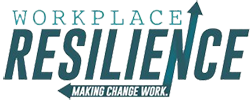 I was discussing an upcoming training with a client the other day when she informed me that one of the key employees wouldn’t be able to make it. If we didn’t present the training on our previously planned date, it would have to be postponed for some time. I immediately responded that we should postpone the training for a couple months until everyone can be present.
I was discussing an upcoming training with a client the other day when she informed me that one of the key employees wouldn’t be able to make it. If we didn’t present the training on our previously planned date, it would have to be postponed for some time. I immediately responded that we should postpone the training for a couple months until everyone can be present.
My client responded by disagreeing with me and insisting that we go ahead with the training. My first thought was that she just didn’t understand the whole situation. Surely, she could see how her thinking was wrong. However, as I continued to truly listen to her reasoning, I began to change my perspective. I actually began to see why her thinking made sense. She did understand what we were trying to accomplish and had already given the dilemma much thought.
I was speaking from my experience, my knowledge of the situation and from my vantage point. I was making my best judgment. However, she shared new information, and made the case as to why this was the right decision. After receiving additional information, I agreed to moving forward with her plan.
So remember when I said that I listened and realized that in light of some new compelling information, I might be incorrect? That’s where a lot of leaders fail in their quest to be successful. They are strong in the concept of making decisions and leading the team, but might not be making the BEST decision because they just won’t listen.
Here are a couple principles to think about next time you are in this situation:
Someone else might have a better idea and that’s O.K.
So here’s the truth: Sometimes it’s not easy for leaders and influencers to like other ideas better then their own. Leaders are confident in their actions. However, leaders can LEARN to step back and truly listen and respect other’s opinions and judgments. This skill can be developed with constant practice.
Focus on the best outcome, not on who had the best idea
Focus less on being right or wrong and more on what the best outcome is for the team. Drop the ego and ask yourself: Will this decision accomplish our goals? Will this decision get us to where we want to go? How will we see the results that we desire?
Truly listen to others when they share their opinion
If I had not actively listened to my client, I would have still been stuck on my original assessment. We would have postponed the training and it would have been the wrong decision for everyone. However, once I heard her additional information and put it in context for this situation, I realized that I didn’t have all the pieces of the puzzle. Actively listening means that I am able to get outside what going on in my own head and what my needs are in the situation. I am able to take a birds-eye view of the situation and see the objective facts.
Think about this the next time you have a discussion and there is a decision to be made. Consciously step back and truly listen to the reasoning. Don’t let emotion and ego get in the way of you reaching the best outcome.



